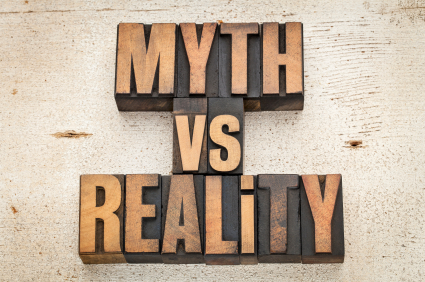The saturated fat/cholesterol myth has now been with us for over 40 years, causing untold damage to health. Fortunately, that myth is now being busted in real time. A parallel scenario is developing with genetically modified organisms (GMOs) – with the additional factor of permanent consequences for the environment. This cannot be allowed to happen!
The saturated fat/cholesterol myth
From the 1950s onward, when Ancel Keys found apparent correlations between coronary heart disease, cholesterol and saturated fat, whole industries grew around the questionable ‘lipid hypothesis’. The food industry prefers processed vegetable oils over natural saturated fats, since they are liquid at room temperature, cheaper to produce and therefore more profitable. The drug industry has made billions of dollars out of cholesterol-reducing statins. Four decades on, the position benefitting industry is maintained, with contradictory findings consistently ignored, and warped public health policies still in place. Essentially, the low-fat high-carb diet pushed by governments has had no effect on the burden of chronic disease in western countries – in fact, it is highly likely a major contributing factor.
Crumbling into dust
We are now seeing this myth crumble before our very eyes. Mainstream cardiologists are speaking out in respected medical publications. Even mainstream television has caught up: two recent Australian programs took aim at the cholesterol/saturated fat myth and statin drugs – although these may have taken liberties with Justin Smith’s earlier, excellent, $tatin Nation.
The ‘safe GMOs with benefits’ myth
‘Safe’ genetically modified crops and foods and their widely touted benefits are a similar myth that has been emerging over the last two decades. Once again, the myth is backed only by questionable corporate science. Just as with processed vegetable oils vs. saturated animal fats, a growing number of studies are revealing serious health and environmental risks associated with GMOs and their accompanying pesticides. A new study from ANH-USA finds that exposure to glyphosate, an ingredient in Monsanto’s herbicide Roundup is linked to very serious human health issues – including birth defects, miscarriages and cancer. Another myth is slowly being deconstructed before our very eyes!
Maintaining the myths
Big Biotech and its powerful allies work hard to counter, ridicule or suppress any science or scientists that seriously criticise GMOs. Cash-starved academic institutions help to dress up and sell the technology, while government propaganda works to foist GMOs upon us, and to assure us that the technology is safe and beneficial.
The parallels with the food industry are, again, startling. It was instructive to see the UK government respond to the publication of the saturated fat ‘debunking’ by announcing a new partnership with Big Food. The food industry will reduce saturated fat in more products, while leaving the guilty party – sugar levels – untouched.
Let’s not let history repeat itself!
To summarise: both low-fat dietary recommendations and GMOs are propped up by imaginary ‘benefits’ backed by corporate science. The only real difference is that GMOs pose even more catastrophic health and environmental effects! We must take drastic action in stopping the development and spread of GMOs throughout the world, as in this case, there may be no turning back. GMOs, if left unchecked, have the potential to permanently alter our environment.
Call to action
- Watch and share the ANH-USA's Story of Demon Weed video, and take the recommended action
- Choose products that don’t contain GMOs. This is relatively easy in the European Union, where any product with more than 0.9% GM ingredients must be labelled as containing genetically modified organisms. Note that this does not apply to animal feed. In the US, where there is no GM product labelling, you can use tools such as The Non-GMO Project or the Institute for Responsible Technology’s Non-GMO Shopping Guide
- Where and when you are able, buy organically certified meats and animal products, as these must either be free of GMOs or contain less than the acceptable threshold (below 0.9% in the EU)
- As in Ireland, look out for optional labelling schemes where declarations are made about produce from non-GM-fed animals
- Check out supermarket and supplier positions on GMOs via their websites; some take a proactive stance on GMOs
- Buy meat that is labelled as being ‘exclusively grass-fed’
- Boycott the companies that helped fund the NO to Prop 37 campaign
- Let your elected representatives know how you feel about GMOs
This article was based on an original idea by Paul Lynch.








Comments
your voice counts
There are currently no comments on this post.
Your voice counts
We welcome your comments and are very interested in your point of view, but we ask that you keep them relevant to the article, that they be civil and without commercial links. All comments are moderated prior to being published. We reserve the right to edit or not publish comments that we consider abusive or offensive.
There is extra content here from a third party provider. You will be unable to see this content unless you agree to allow Content Cookies. Cookie Preferences